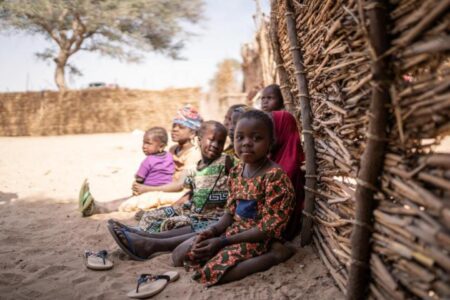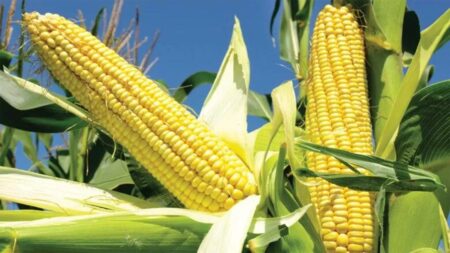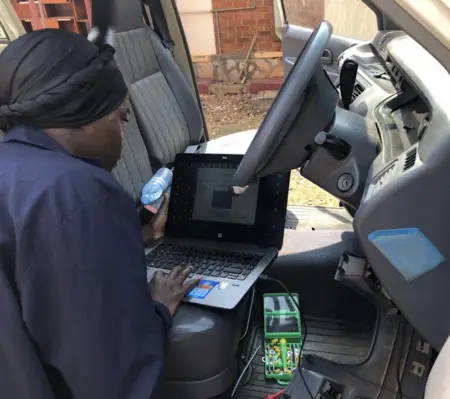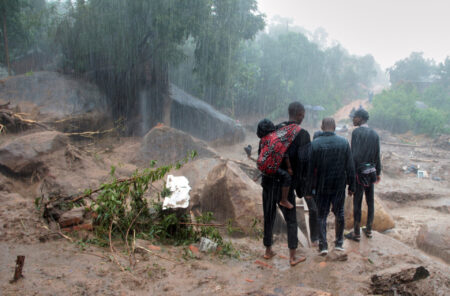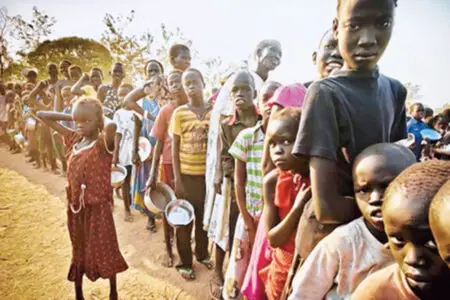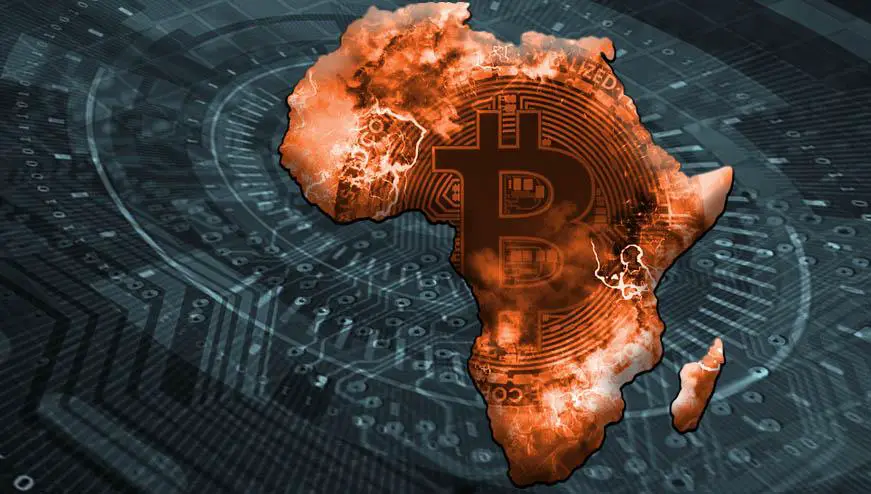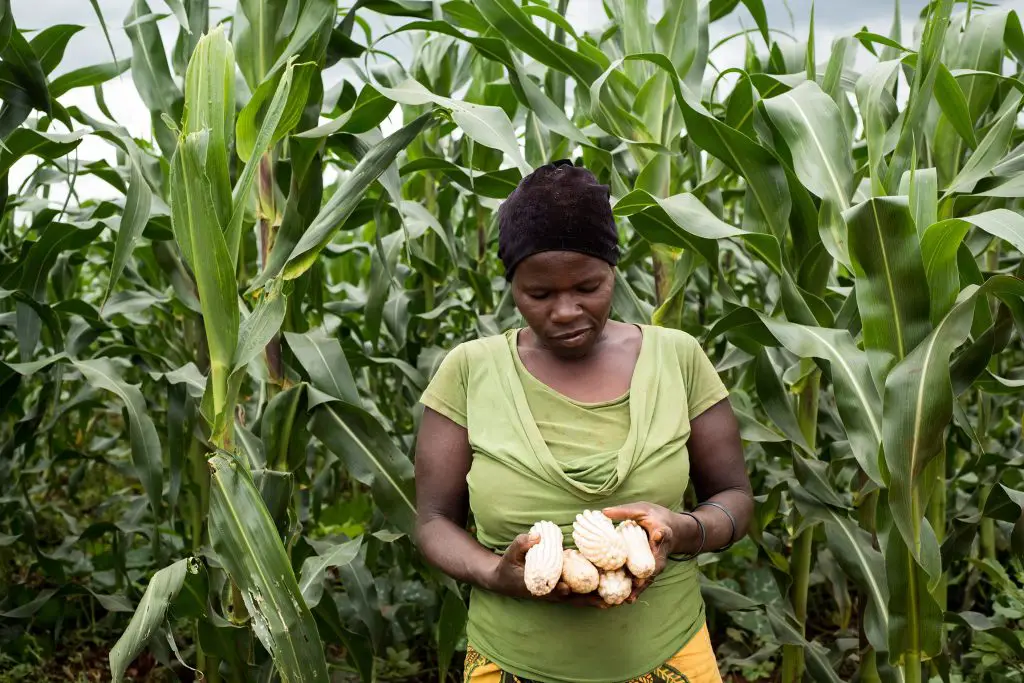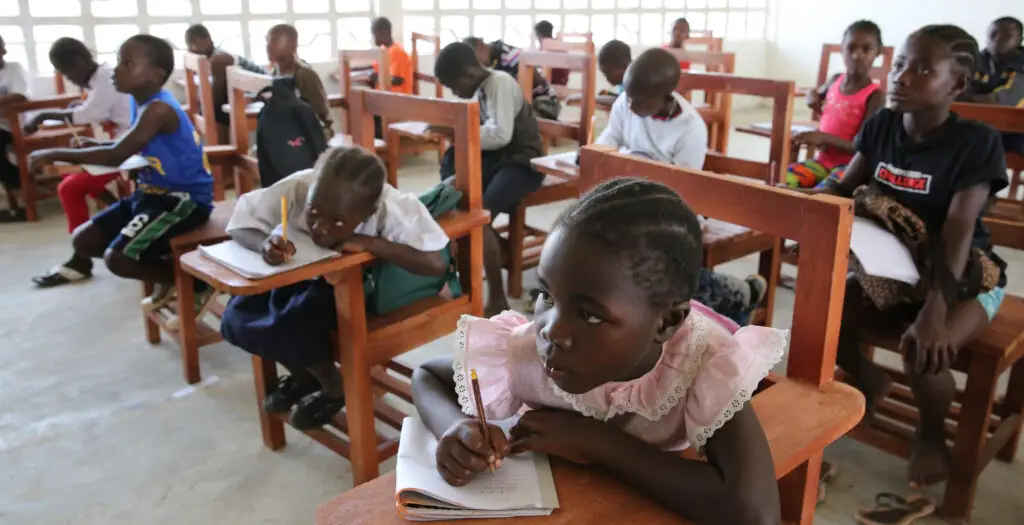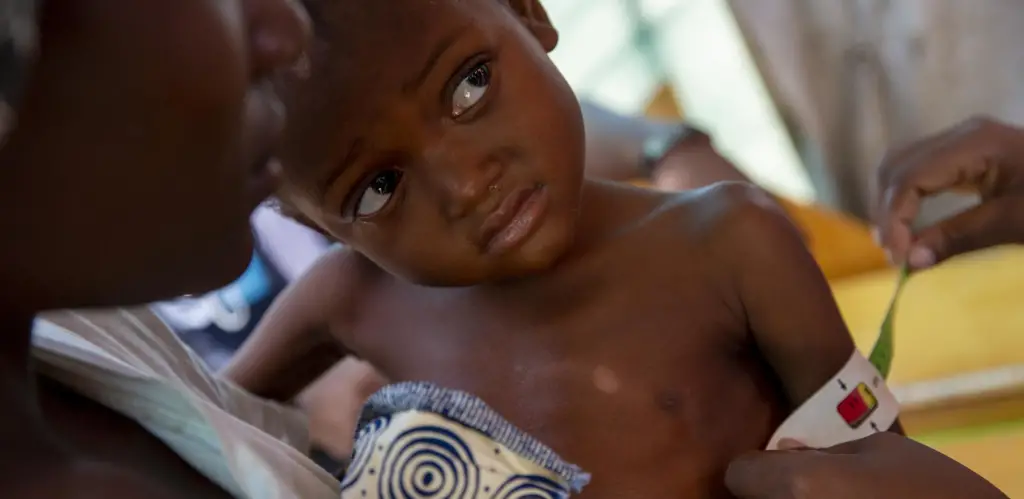- Africa’s natural resources: Will Trump’s policies benefit or exploit the continent?
- US Sanctions Zimbabwe’s gold smuggling Kingpin Kamlesh Pattni
- From Industry 5.0 to Future Finance: AIM Congress 2025’s bold agenda, key partners unveiled
- John Mahama Makes a Comeback as Ghana’s President
- Zambia’s solar energy drive: Fighting rural energy poverty with renewable options
- Nigeria to Ban Corn Exports Amid a Biting Food Security Crisis
- Democracy or diplomacy? Balancing U.S. interests in Africa under Trump 2.0
- African startups hit by funding drought in 2024, but innovation persists
Browsing: UNiCEF
- Historically, efforts to combat malnutrition have often been siloed, with different sectors working in isolation.
- Despite the clear benefits of improving nutrition—both in terms of individual well-being and broader economic development—funding for nutrition initiatives has often been insufficient.
- A new approach seeks to break down these silos by promoting cross-sector collaboration and integrating nutrition into broader development strategies.
Malnutrition in Africa remains a persistent challenge, affecting millions of people and hindering the continent’s development. The African Union Commission (AUC) and the African Development Bank Group’s African Leaders for Nutrition (ALN) initiative, in collaboration with the government of Senegal, have launched a new effort to address this issue head-on.
This initiative, which has brought together key stakeholders from various sectors, aims to develop Africa’s first-ever Multisectoral Nutrition Policy Framework (MNPF) and an ambitious investment target to combat malnutrition across the continent. The recent regional consultation held in Dakar, Senegal, marks the …
- World hunger is not the result of food shortage, and opposition to gene-edited crops, but due to political strife.
- Global food production is sufficient to feed all, but skewed distribution systems create a huge shortfall in countries.
- Analysis shows that even if GMOs were adopted globally, food shortage will persist.
Globally, Genetically Modified (GM) crops have been touted as the magic wand that could end world hunger. The ability of gene-edited crops to produce more over shorter periods of time and their resistance to diseases has been lauded. Further, GMO’s ability to resist poor weather conditions occasioned by climate crisis are earning them acceptance across nations.
These traits make Genetically Modified Organisms (GMOs) a solution to global food shortage. Increasingly, naturally maturing crops are yielding little, and their long gestation periods leave them vulnerable to climate crisis. Further their vulnerability to pests and diseases drastically cuts yields, exacerbating food shortages.…
- An estimated 90 percent of African women do not use the internet, UNICEF reveals.
- UNICEF report says millions of girls are less prepared for the digital revolution in Africa.
- Governments in Africa urged to increase women’s safety online
While the digital revolution is believed to be reducing gender inequality globally, in Africa, the internet is largely a preserve of men. According to UNICEF, up to 90 percent of African women do not use the internet yet their male peers are twice as likely to be online.
Titled “Bridging the Digital Divide: Challenges and an Urgent Call for Action for Equitable Digital Skills Development” the survey warns that girls in Africa “are being left behind in the digital world and are the least likely to have the opportunities to develop the skills needed for 21st-century learning and employment.”
Girls less likely than boys to access internet
Released on the International Day …
- Price of staples goes up 300 percent compared to the same time last year.
- UNICEF estimates more than 4.8 million children are in dire humanitarian need.
- Over 500 000 people displaced
The social and economic impact of tropical cyclone Freddy on Malawi continues to worsen as inflation kicks in on all staple foods.
While recovery efforts are ongoing, Malawi is now under high pressure to stabilize food prices. It is now over ten days since the South-Eastern African country was hit by what is considered the worst-known tropical cycle to ever occur anywhere in the world.
“Very intense Tropical Cyclone Freddy was an exceptionally long-lived, powerful, and deadly storm that traversed the southern Indian Ocean for more than five weeks in February and March 2023. Freddy is both the longest-lasting and highest-ACE-producing tropical cyclone ever recorded worldwide,” reports the World Food Programme (WFP).
The report cites 1,078mm of rain fell …
- Over 20 million children in the Horn of Africa will suffer severe hunger, thirst and disease in 2023
- Africa food crisis blamed on climate change and the Russia-Ukraine war
- The continent continues to invest millions for future projects as millions die by the day
A prolonged drought linked to climate change is being linked to a severe food crisis in the Horn of Africa with millions in parts of Ethiopia, Somali and Kenya facing staring death as a result of extreme hunger.
According to the UN Children’s Fund (UNICEF), the number of children suffering from dire drought conditions has more than doubled in the last five months of 2022, spelling a hunger doom in 2023.
It is estimated that over 20 million children in the Horn of Africa will suffer severe hunger, thirst and disease in the coming year; a figure that is twice the 2022 figure that was pegged …
- Africans, starting from governments, startups, non-governmental organizations, and generally all the people in the continent, are losing much more for failing to adapt to the advancements in the digital world
- Artists ranging from painters, drawers, actors, musicians, sculptors and writers can now sell their pieces of art across the world as Non-Fungible Tokens (NFTs)
- Every day, new games are launching on the metaverse and you can buy an altcoin in a game and earn real money from it!
- bitcoin and other cryptocurrencies are a store of value and could be a haven asset in times of turmoil, playing the same role as gold
Several African governments have stood firm against cryptocurrencies even as blockchain technology takes over the currency markets. It appears that the dice on the shift to cryptos is already cast. The possibilities enabled by these cryptocurrencies make the switch imminent.
The biggest hindrances to the success of…
- Agriculture is contributes 23 percent of African GDP, Mckinsey 2019
- At least 43.8 percent of people are employed in the agriculture sector
- Only 5-6 percent of arable land in Africa is irrigated
Agriculture in Africa has not only an economic value but a cultural significance. It is time to transform the economy and lives of African farmers. Africa is home to nearly 60 percent of the world’s arable land. Over the past decade, African agriculture has faced a number of shocks which beg for technological transformation. Farming in Africa contributes greatly to the welfare of most rural-based populations.
Despite the standing potential, productivity in Africa is lagging; hence, the role of modern technology stands to draw billions into it.Africa imports some food items abroad, such as wheat from war-entangled nations Ukraine and Russia, causing severe food insecurity issues for financially constrained nations such as Sudan.
Agriculture is not only the…
- Learning poverty is costing African young learners dearly
- Median international school fees in Africa span from US$4000 to US$10000 in Africa
- Free education in Africa is now available across most countries.
Education is the most valuable investment any country can have, but the COVID-19 pandemic places this priceless activity in a rather unprecedented position, threatening the fate of the next generation.
Various numbers and figures make the latter clearer. According to International Schools Database, Median international school fees in Africa span from US00 to US,000 in Africa. (https://artandhistory.org/) According to a 2020 based study on 14 countries, the average spending mark on education in Africa was 4.77 per cent.
Out of 53 countries, at least more than 40 provide free education to children in Africa. These numbers are a glimpse of how education is crucial to developing economies, Africa to be specific.
Read: World Bank invests in East …
According to SOS Children’s Villages, 3.2 million children under the age of five die every year because of hunger and drought in Africa. In other words, more than half the children who die of hunger-related causes come from the continent.
In the same breath, he said that there has also been inconsistency in the flow of funds to UNICEF to support humanitarian response.
UNICEF said more than 255,000 children received treatment for severe wasting in Somalia last year. On Tuesday, January 2022, the International Organization for Migration (IOM) said the widespread drought in the Horn of Africa has severely affected the country the most, forcing the government to declare a state of emergency in November.…
- Bill & Melinda Gates Foundation, the Swedish International Development Cooperation Agency (SIDA), and UNICEF said the financing will help sustain national immunization programs
- These will include COVID-19 vaccination campaigns, and enable the timely procurement of essential health supplies while domestic financing is mobilized
- Access to diagnostics, treatments, vaccines and other essential health supplies is critical to ensuring that countries can protect their people against COVID-19 and other health threats
Three organizations have announced a $150 million financial guarantee to help UNICEF procure vaccines and other health-related supplies for low- and middle-income countries (LMICs).
The three, Bill & Melinda Gates Foundation, the Swedish International Development Cooperation Agency (SIDA), and UNICEF said the financing will help sustain national immunization programs.
These will include COVID-19 vaccination campaigns, and enable the timely procurement of essential health supplies while domestic financing is mobilized.
The financing will be effective through 2025.
According to the partners, many …





